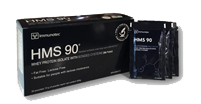Mol Aspects Med. 2009 Feb-Apr;30(1-2):29-41
Glutathione in liver diseases and hepatotoxicity.
Glutathione (GSH) is a major antioxidant as well as redox and cell signaling regulator. GSH guards cells against oxidative injury by reducing H2O2 and scavenging reactive oxygen and nitrogen radicals. In addition, GSH-induced redox shift with or without ROS subjects some cellular proteins to varied forms of oxidation, altering the function of signal transduction and transcription factor molecules. Increasing evidence supports the important role of ROS and GSH in modulating multiple signaling pathways. TNF-a and Fas signaling, NF-kappaB, JNK and mitochondrial apoptotic pathways are the focus of this review. The redox regulation either can switch on/off or regulate the threshold for some crucial events in these pathways. Notably, mitochondrial GSH depletion induces increased mitochondrial ROS exposure which impairs bioenergetics and promotes mitochondrial permeability transition pore opening which is critical for cell death. Depending on the extent of mitochondrial damage, NF-kappaB inhibition and JNK activation, hepatocytes may either undergo different modes of cell death (apoptosis or necrosis) or be sensitized to cell-death stimuli (i.e. TNF-a). These processes have been implicated in the pathogenesis of many liver diseases.
Glutathione in liver diseases and hepatotoxicity.
Glutathione (GSH) is a major antioxidant as well as redox and cell signaling regulator. GSH guards cells against oxidative injury by reducing H2O2 and scavenging reactive oxygen and nitrogen radicals. In addition, GSH-induced redox shift with or without ROS subjects some cellular proteins to varied forms of oxidation, altering the function of signal transduction and transcription factor molecules. Increasing evidence supports the important role of ROS and GSH in modulating multiple signaling pathways. TNF-a and Fas signaling, NF-kappaB, JNK and mitochondrial apoptotic pathways are the focus of this review. The redox regulation either can switch on/off or regulate the threshold for some crucial events in these pathways. Notably, mitochondrial GSH depletion induces increased mitochondrial ROS exposure which impairs bioenergetics and promotes mitochondrial permeability transition pore opening which is critical for cell death. Depending on the extent of mitochondrial damage, NF-kappaB inhibition and JNK activation, hepatocytes may either undergo different modes of cell death (apoptosis or necrosis) or be sensitized to cell-death stimuli (i.e. TNF-a). These processes have been implicated in the pathogenesis of many liver diseases.
HMS 90®
Contact Details
บริษัท อิมมูโนไทย จำกัด245/4 ถ.สุขุมวิท 21 (อโศก) แขวงคลองเตยเหนือ เขตวัฒนา กรุงเทพฯ 10110092-696-6925info@immunothai.co.th

